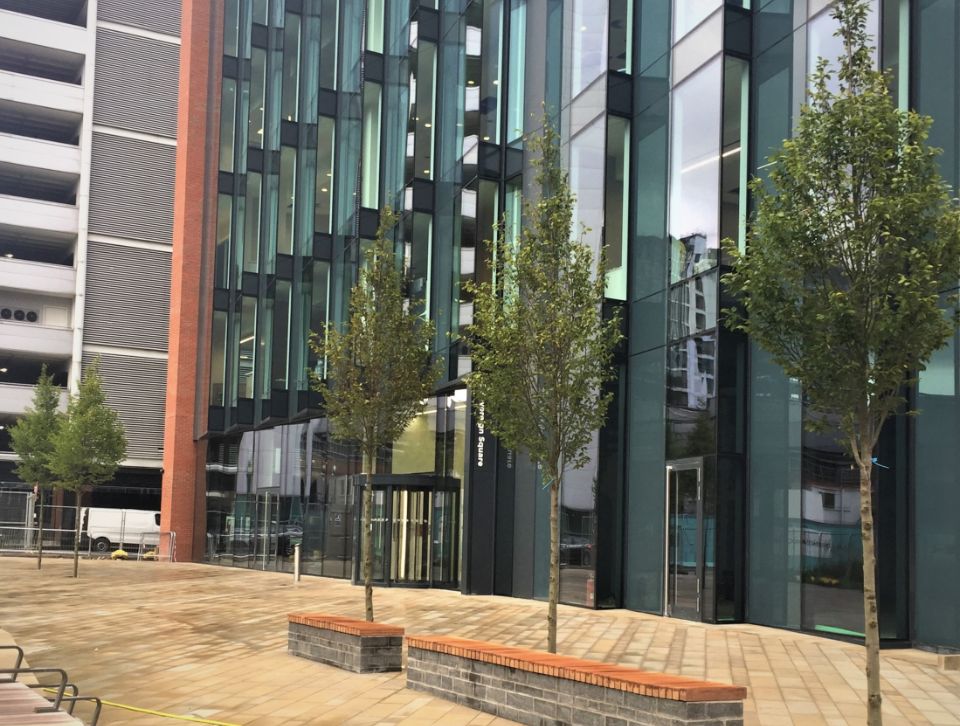Nine Himalayan Birch trees are growing large and healthy in Silva Cells, which likewise assist in on-site stormwater treatment
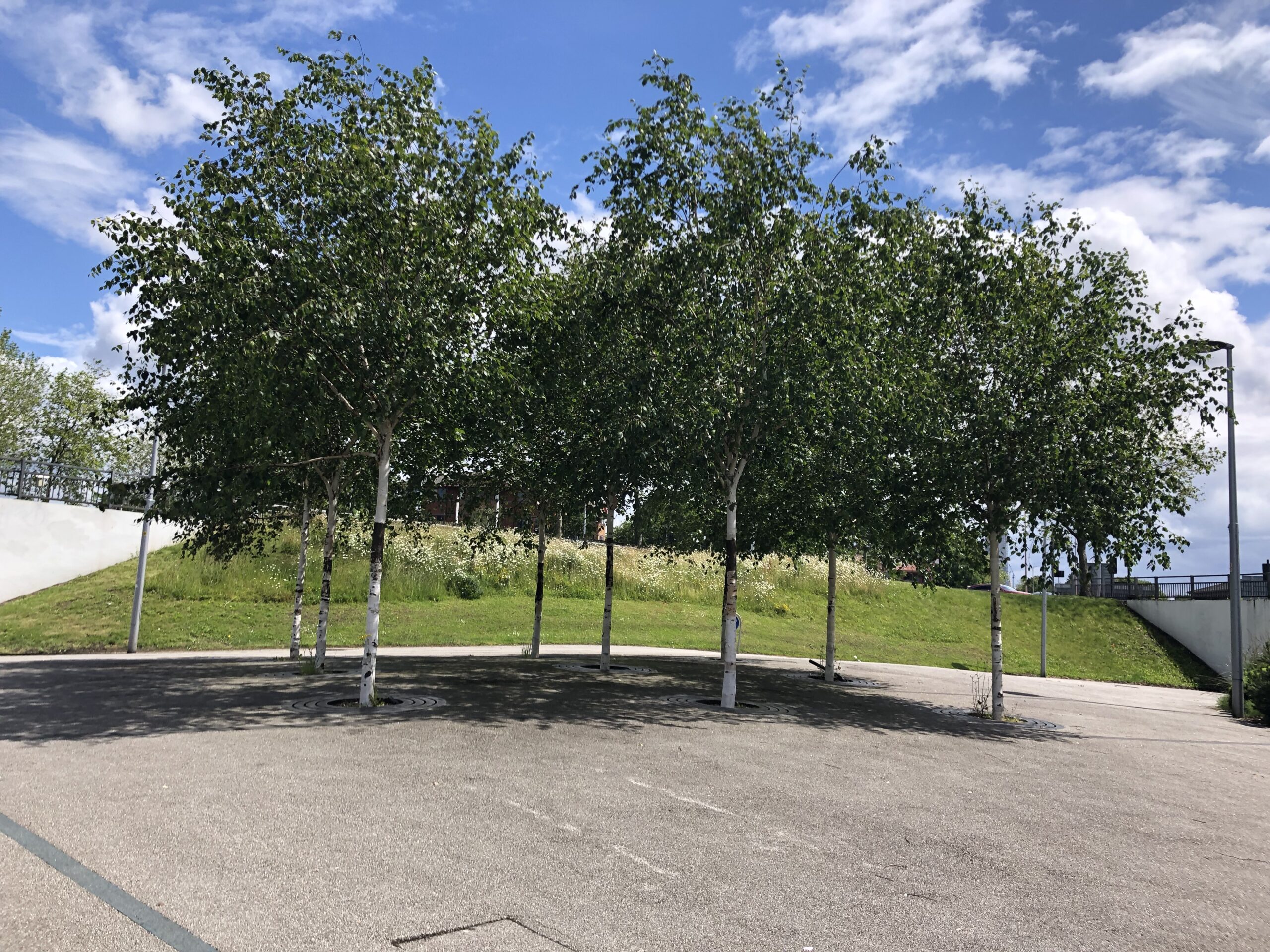
Part of the larger Gateway Quays project in Salford, the bustling M602 roundabout connecting the city to Manchester received an overhaul in 2010 that included a facelift to the traffic-adjacent footpaths. The Gateway Triangle, situated below the southwest corner of the roundabout corridor, serves as a pedestrian and cycling route to Salford Quays — and, as part of the redevelopment, a small plaza with nine new trees was erected in the fall of 2010. Silva Cells were installed under the hardscape to provide a lightly compacted soil environment for the plantings, while simultaneously assisting in managing the roadway’s stormwater runoff. More than a decade later and the trees are flourishing, serving as a shady respite for foot traffic and as welcoming greenery for passing motorists.
Number of Silva Cells: 184
Total Shared Soil Volume: 47m3 (1,659 ft3 )
Number of Trees: 9 (Betula Utilis Jacquemontii)
Type of Project: Municipal, Courtyard, Stormwater
Project Designer: Urban Vision Partnership
Project Contractor: GPL Civil Engineering
Installation Date of Silva Cells: Fall 2010
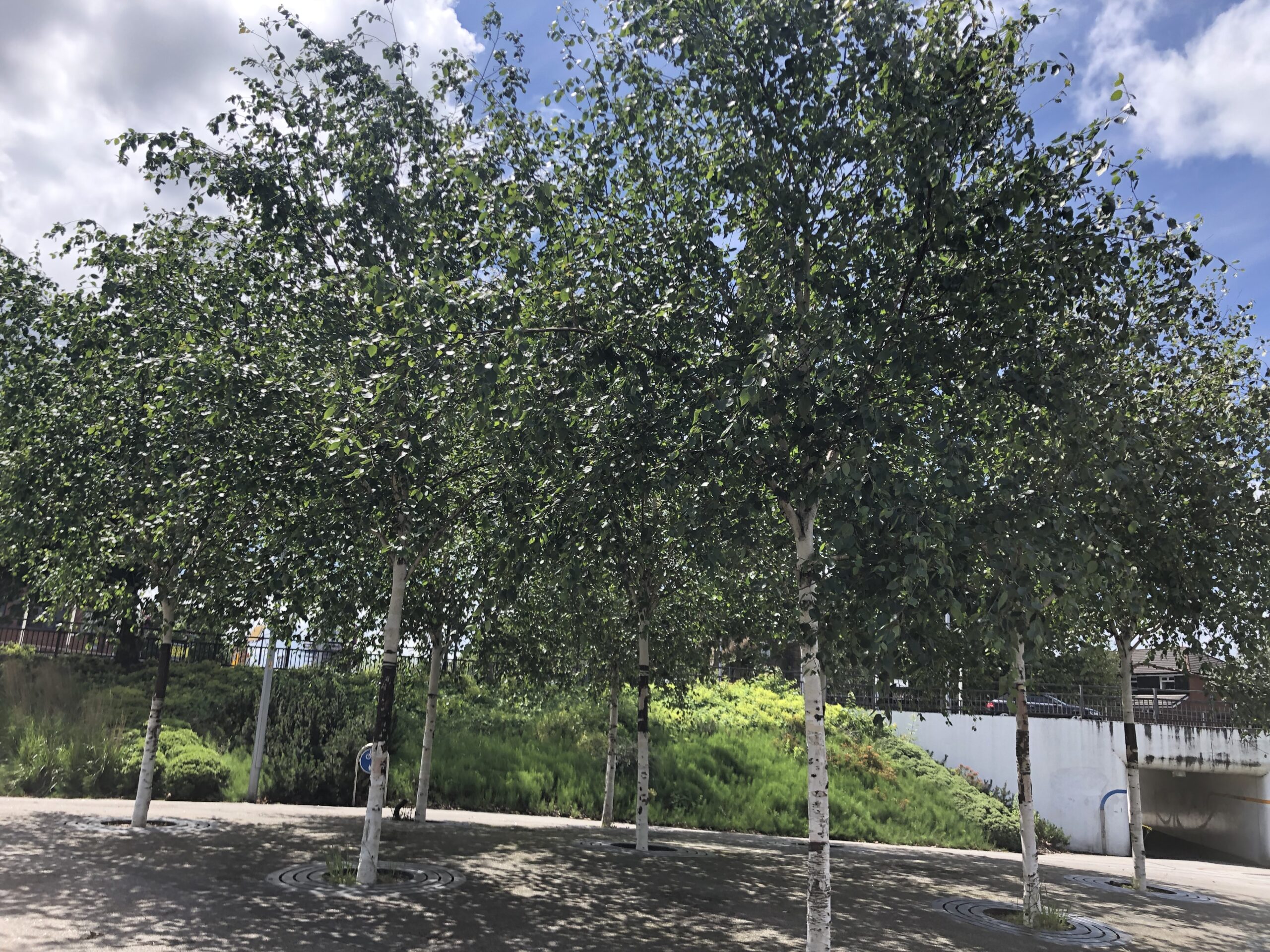
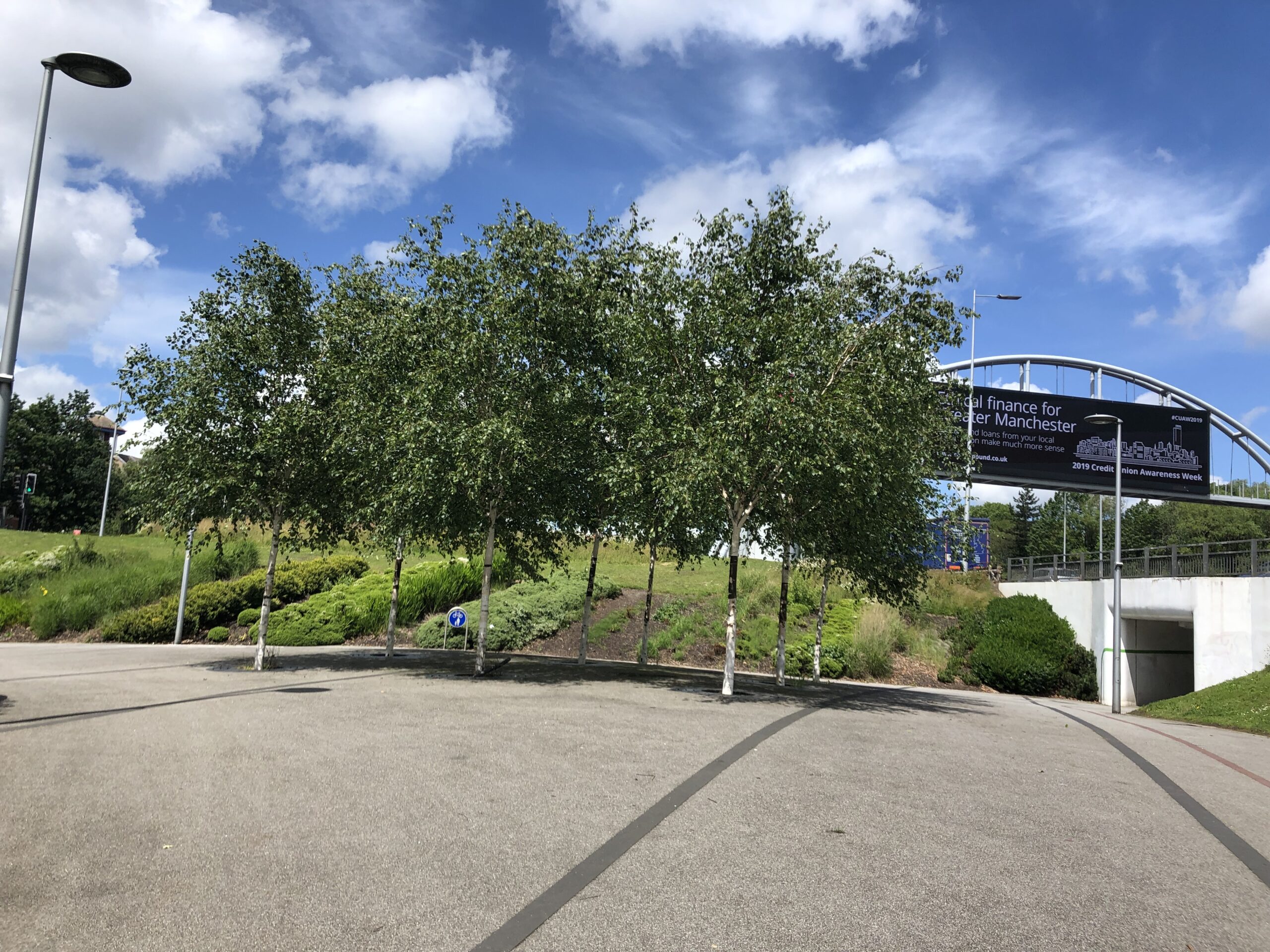
A central design theme of the Salford Quays renovation project was to enhance what already existed: transit routes and paths to the quays from central Salford and nearby Manchester’s surrounding communities. The landscape architect, Urban Vision Partnership (which has since been amalgamated with Salford City Council), envisioned walkable and bike-friendly paths along an aesthetically pleasing route. The project team was able to construct a new underground passageway for pedestrians that met these criteria. The flourishing birch trees continue to add to the attractiveness and functionality of the restoration space. Since September 2010, there has been more positive change to the area.
The town of Salford is just west of Manchester, bordered by the River Irwell. The Salford Quays have historically shaped the character of the city — throughout the 19th and 20th centuries, the dockyards and the river served as a major transport hub for people and goods in and out of Manchester to Liverpool and beyond.
In 2007, plans to renovate the historic peninsula of the Quays, which would become the mixed-use development and home of the BBC (MediaCityUK) were on the horizon. Today, the expansion continues. Salford City Council notes, “The city has a bold new vision to deliver 40,000 new homes and 40,000 new jobs by 2040.” This will certainly impact the foot and pedal traffic throughout the town. The council showed great foresight in encouraging and initiating the renovation of the triangle walkway bordering the roundabout.
The location of the project was unique in that it bordered a tunnel and led to the River Irwell and Salford Quays. The project team constructed a new underground passageway for pedestrians. Photos before construction show that the project area was a field of grass, in a bowl shape, conducive to stormwater flooding. Trees and Silva Cells together act as supportive infrastructure, flood mitigator, and sponge. The design incorporated Silva Cells and gabion baskets to create more void for stormwater.
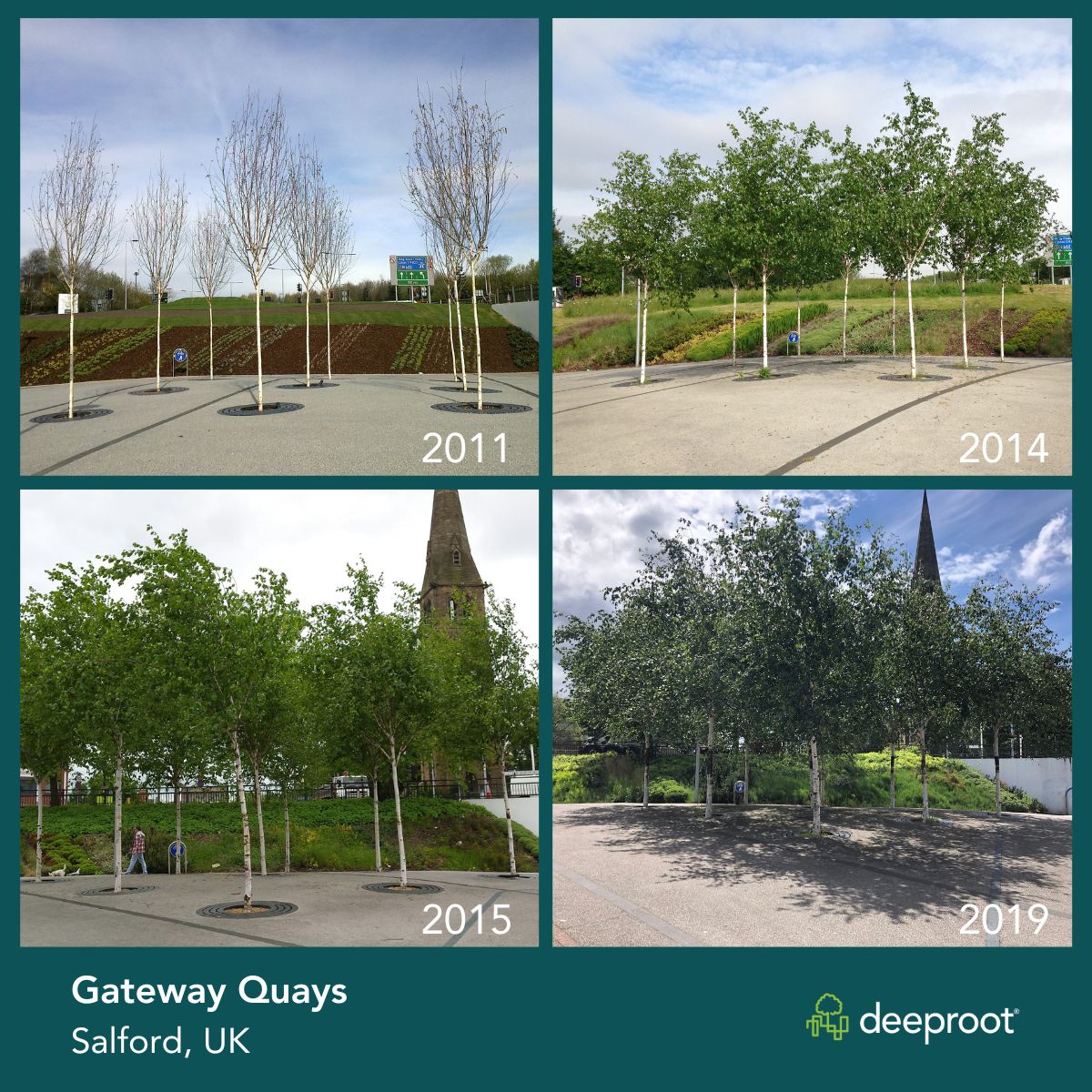
One big benefit of using Silva Cells is that soil can be mechanically loaded into the cells, saving a huge amount of time and labor. Project Manager for GPL Civils Chris Wright noted, “Installing the Silva Cell is very simple and straightforward, there really is nothing to it. The supply and on-site installation support we were given was invaluable, we would happily install the Silva Cells in future projects.”
When asked if the project’s goals have been achieved, Steve Chatwin-Grindey (project manager at DeepRoot Urban Solutions) said: “Absolutely and then some. The trees are performing extremely well, no settlement, and the onsite stormwater is controlled.” DeepRoot is thrilled to see such positive results from the Quays Gateway project. We look forward to what the next ten years will bring as the urban development trend continues in and around Salford.
For other DeepRoot projects in the UK, check out our case studies here, here, and here.
